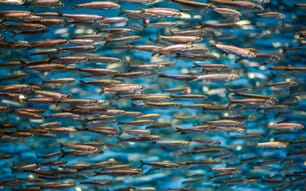Oceana values the contribution from the Commission, which further justifies measures that have been proposed for improving the sustainability of deep-sea fisheries in the North-East Atlantic Ocean, and contradicts exaggerated claims made by the fishing sector about the potential socioeconomic impacts of the proposed regulation.
“The latest report from the European Commission shows that deep-sea fisheries represent only 1.4 per cent of European catches in the North-East Atlantic, which points to a clear imbalance between the harm these fisheries cause to vulnerable species and ecosystems and their limited economic returns,” stated Xavier Pastor, executive director of Oceana in Europe.
Management of deep-sea species in the region has proven ineffective to date, as recognised by the Commission. Many deep-sea species are not covered by current regulations and are therefore unmanaged, while the condition of most managed stocks is either poor or unknown.
Current legislation also leaves vulnerable marine ecosystems, such as deep-sea coral reefs and sponge beds, unprotected from damaging fishing gears. Key measures proposed by the Commission to redress this situation include extending management to cover more species, setting fishing quotas in strict accordance with scientific advice, and phasing out the use of damaging bottom gears for targeting deep-sea species.
Yesterday, these issues were also discussed in a parliamentary hearing, during which presentations were made by members of the fishing industry and scientists. The debate focused almost entirely on the phase-out of deep-sea gears that contact the sea bottom, and the potential implications of this change for the fishing sector.
The report presented by the Commission addresses those implications. It shows that only two per cent of EU vessels fishing in the region could potentially be affected by the proposed gear phase-out. Even for these vessels, deep-sea species represent a limited share of their catches, suggesting that impacts of the phase-out will be limited.
“The proposed new regulation contains a broad range of management measures that are desperately needed for safeguarding deep-sea resources,” noted Javier López, marine scientist with Oceana.
“It is regrettable that no one seems to be interested in dealing with the other issues, such as managing depleted stocks, protecting vulnerable species, or improving the collection and reporting of much-needed data.”
Members of the Deep Sea Conservation Coalition (DSCC) attending the parliamentary hearing have criticized the proceeding as a deliberate waste of time designed to derail the push for protection.
Mathew Gianni of the DSCC said: "This was a clear and determined attempt to delay the adoption of new legislation to protect deep sea habitats and ensure sustainable deep-sea fisheries. There is an urgent need for the European Parliament to get on with the job of drafting this legislation but the deep-sea trawl fishing industry’s supporters on the Fisheries Committee lead by Parliamentarians from France, Spain, the UK and Ireland attempted to halt it in its tracks. They have already caused one major delay and may try to do so again in the next few months but fortunately the Committee voted today to proceed without further delay to at least the next step in the process.”



